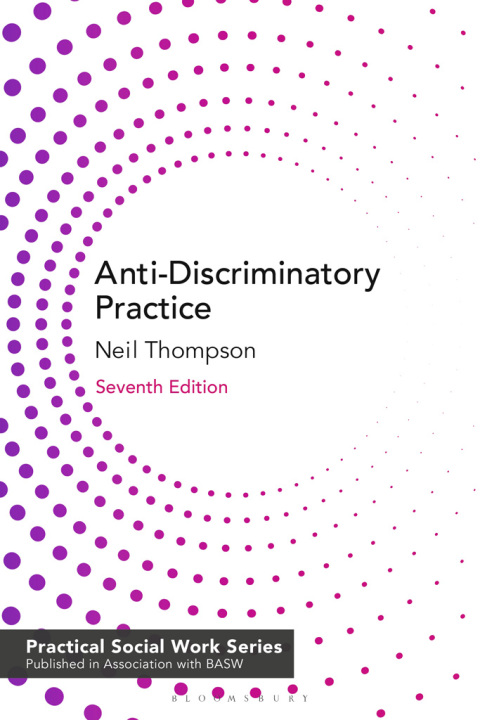Description
Efnisyfirlit
- About the author
- Foreword by David L. Cooperrider
- Acknowledgements
- Online resources
- Prologue: An introduction to the book
- On strategic corporate social responsibility (CSR)
- About this book
- The second edition of this book
- Abbreviations
- Part I CSR thought
- 1 Our changing world and the evolution of CSR
- Introduction: The importance of corporate social responsibility (CSR)
- CSR defined and debated
- CSR: What’s in the name?
- A brief history of CSR thought
- From a narrow view to a broad view of business responsibilities
- The narrow view
- The broad view
- Drivers for change
- Business motivation for CSR
- Business as a force for good
- Social entrepreneurship and social business
- B Corps
- Summary
- Key definitions
- References
- Further reading and links
- 2 From CSR pyramids to shared value and beyond: CSR models and frameworks
- Introduction: There is nothing so practical as a good theory
- The CSR pyramid
- Criticism of the CSR pyramid
- An alternative pyramid
- CSR stages: Pathways to being more responsible
- Creating shared value
- Importance and limitations
- Explicit and implicit CSR
- Offensive and defensive CSR
- CSR congruence model
- Strategic CSR
- Summary
- Key definitions
- References
- Further reading and links
- 3 Moving beyond shareholders: Internal and external stakeholders
- Introduction: Every business has stakeholders
- Stakeholders defined
- The importance of stakeholder theory to CSR
- Who the stakeholders are: Lists and typologies
- Three circles of stakeholders
- Internal and external stakeholders
- Primary and secondary stakeholders of a conscious business
- From stakeholder prioritisation and management to integration
- Stakeholder prioritisation
- Three levels of stakeholder management
- Stakeholder integration and the Win6 approach
- Multi-stakeholder initiatives
- Stakeholder-related CSR issues
- Employees: Fair employment
- Suppliers: Fairtrade
- Consumers: Ethical trade and ethical marketing
- Governments: Partnership beyond taxes
- Summary
- Key definitions
- References
- Further reading and links
- Part II CSR approaches and implementation
- 4 Business ethics: How philosophy can help us make ethical decisions in today’s business
- Introduction: The importance of business ethics to CSR
- Ethics and business ethics defined
- What guides our behaviour in the workplace?
- Morality and values
- Personal values
- Corporate values
- Three philosophical approaches: Implications for management
- Deontology
- Utilitarianism
- Virtue ethics
- Ethical relativism
- Business ethics in practice: Ethical and unethical conduct
- Ethical people management
- Fraud
- Corruption
- Conflict of interest
- Insider trading
- Whistleblowing
- Ethical issues with CSR
- Ethical dilemmas and decision making
- The four paradigms approach
- Ethical decision-making frameworks
- Creating and leading an ethical organisation: Managerial tools
- A practical guide to enhancing workplace ethics
- Summary
- Key definitions
- References
- Further reading and links
- 5 The S in CSR: Social and global issues
- Introduction: Business and society
- Responsibility towards society and the community
- SDGs and social responsibility
- Poverty and hunger
- Human rights and modern slavery
- Political issues and corporate activism
- Business and peace
- Equality, inclusion and diversity
- Gender equality
- LGBTQ+ rights
- Facing a major global crisis: The case of COVID-19
- Summary
- Key definitions
- References
- Further reading and links
- 6 Environmental sustainability: The role of business in sustainable development
- Introduction: Environmental sustainability – an urgent matter
- Climate change
- Climate action and activism
- Sustainability defined
- Sustainable development
- Environmental SDGs
- The business case for sustainability
- Sustainability as the key driver of innovation
- The circular, green and blue economies
- The circular economy
- The green economy
- The blue economy
- Corporate response to natural disasters
- Sustainability business tools: Sustainable managerial practices
- The journey to sustainability
- Sustainable supply-chain management
- Working with all stakeholders to improve sustainability
- Summary
- Key definitions
- References
- Further reading and links
- 7 Responsible leadership: Inspiring CSR
- Introduction: The role of responsible leadership in CSR
- CSR and the role of leadership
- Sustainable, responsible and ethical leadership
- Sustainable leadership
- Responsible leadership
- Ethical leadership
- Leading with a ‘why’: Purpose-driven leadership
- The importance of vision and transformational leadership
- The leader as a servant
- Being true to self: Authentic leadership
- Shared leadership
- Conscious leadership
- The holistic approach to CSR leadership
- Summary
- Key definitions
- References
- Further reading and links
- 8 All aboard: Involving stakeholders in CSR
- Introduction: Moving from stakeholder management to involvement and integration
- Employee involvement in CSR
- Employee engagement and CSR: Two aspects
- Involving employees in CSR: Motivations and benefits
- Three models of employee engagement in CSR
- CSR congruence model
- Employee-led CSR
- Social intrapreneurship
- Corporate volunteering
- Employee giving
- Involving employees in sustainability
- Consumers: Sustainable and ethical consumerism and consumer philanthropy
- Mindful and sustainable consumption
- Involving investors and shareholders
- Socially responsible investment (SRI)
- Social screening, community investment and shareholder activism
- How to involve shareholders in CSR
- Summary
- Key definitions
- References
- Further reading and links
- Part III CSR measurement and connection
- 9 CSR impact: Creating, measuring and communicating the impact
- Introduction: We treasure what we measure
- Social impact, collective impact and social impact assessment
- The importance of measuring impact
- Social impact measurement tools and methods
- Logic models
- Theory of change
- Social return on investment (SROI)
- Social accounting and audit (SAA)
- SIMPLE: Social IMPact measurement for local economies
- Measuring SDG progress
- Impact measurement challenges
- Summary
- Key definitions
- References
- Further reading and links
- 10 Benchmarking CSR: Frameworks, standards, certifications and indices
- Introduction: The importance of CSR benchmarking
- Frameworks and guidelines
- The UN Global Compact (UNGC)
- OECD Guidelines for Multinational Enterprises
- Standards
- ISO 26000 (Guidance on social responsibility)
- ISO 14000 family of environmental management standards
- SA8000 (social accountability)
- The Higg Index
- Certifications and labels
- Fairtrade
- Rainforest Alliance
- Forest Stewardship Council
- Indices
- Dow Jones Sustainability Index
- NASDAQ OMX: Green Economy Index
- Lessons and implications
- Summary
- Key definitions
- References
- Further reading and links
- 11 CSR reporting
- Introduction: From measurement to reporting
- Why CSR reports? The roles and goals of CSR reporting
- Who CSR reports are for
- What companies report about
- Using CSR reporting as an effective communication tool
- How to report: Reporting options
- Basic reporting
- Full CSR reports
- Advanced reporting
- Integrated reporting
- Game-changing reporting
- CSR stages and reporting options
- Global Reporting Initiative (GRI)
- CSR reporting analysis model
- Related challenges
- Reporting tips and tools
- Summary
- Key definitions
- References
- Further reading and links
- 12 CSR and marketing: Three frontiers
- Introduction: Holistic CSR and marketing
- CSR and marketing: Should we PR our CSR?
- Three strategies for CSR marketing
- Advantages and risks of CSR marketing
- CSR and consumer behaviour
- Storytelling in CSR marketing
- CSR as a competitive advantage
- Ethical and sustainable marketing
- Seven basic practices of normative marketing ethics
- Five essential ethical precepts for enlightened marketing
- Marketing codes of ethics
- Sustainable marketing
- Unethical marketing and greenwashing
- Social marketing by business
- CSR marketing: Best practices
- Summary
- Key definitions
- References
- Further reading and links
- 13 The way forward: Making the shift
- Introduction: Changing for a sustainable future
- Organisational change
- Five imperative questions
- Force field analysis model and CSR
- Appreciative inquiry
- Kotter’s eight steps for organisational change
- CSR-specific change-management frameworks
- The integrative framework
- The six insights towards sustainability
- Implementing strategic CSR
- The way forward: Challenges and opportunities
- The future of CSR
- Epilogue
- Summary
- Key definitions
- References
- Further reading and links
- Index






Reviews
There are no reviews yet.